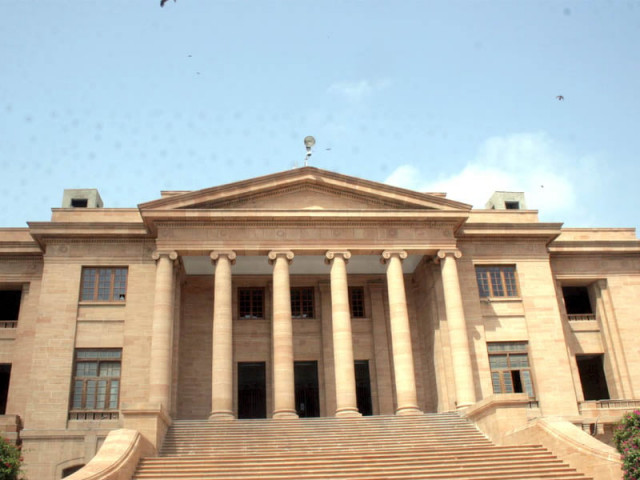Nab powers: SHC dismisses plea challenging accountability law
Petitioner withdrawn by lawyer as he fails to satisfy court's query

Sindh High Court building. PHOTO: EXPRESS
Headed by Justice Muhammad Ali Mazhar, the division bench dismissed the plea as the litigating civil servant lawyer, Farooq H Naek, could not satisfy the court on the law point that "whether the high court can strike down the constitutional provisions while exercising its jurisdiction under Article 199".
A civil servant, Asghar Abbas Sheikh, had challenged the validity of the Nab Ordinance 1999 under which Nab officials were allegedly harassing him during an inquiry into the Hyderabad twin city scam.
His lawyer, Farooq H Naek, had said that the Article 270AA was inserted into the Constitution through the 17th constitutional amendment, which was struck down through the 18th Amendment. "Since all the ordinances were protected under Article 270AA, which has been struck down, the Nab Ordinance does not exist anymore," said the lawyer.
Therefore, the court was pleaded to declare that the Nab Ordinance 1999 is a non-existent law after April 20, 2010, when the 18th Amendment was passed by the Parliament. It was also requested to restrain the Nab authorities from issuing call-up notices, making arrests and filing corruption references against all civil servants in the province.
On July 6, the two judges had asked Naek to satisfy the court on the legal point as to whether the SHC can strike down any constitutional provisions, as pleaded by him, while exercising its powers under Article 199 of the Constitution.
During Friday's proceedings, Naek made initial submission on the point, but could not satisfy the court that it could strike down any constitutional provisions under Article 199. In the end, he pleaded the court allow him to withdraw the petition. Allowing his request, the two judges dismissed the petition.



















COMMENTS
Comments are moderated and generally will be posted if they are on-topic and not abusive.
For more information, please see our Comments FAQ